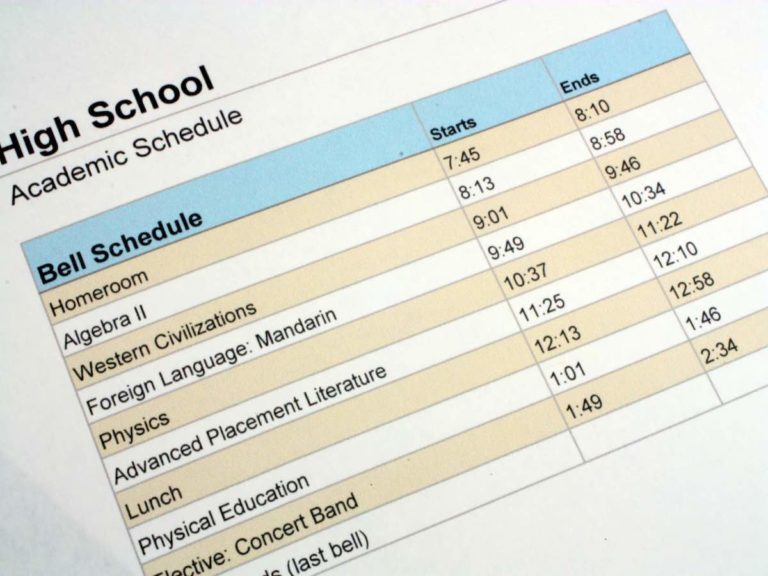What is the Core Curriculum?
There are major courses that you need to take to specialize in an area of study as well as electives that you may take to pursue your interests.
And then there are also courses in what’s called the core curriculum you are required to take.
The core curriculum consists of different courses that all undergraduates must take to earn their bachelor’s degrees.
Many institutions require their students to complete various core curriculum courses to turn them into more well-rounded individuals as well as prepare them for their careers and life beyond college.
The Core Curriculum vs. Others
Before anything else, let’s differentiate the core curriculum with things that can be easily mistaken for them so that you can understand it better and thus avoid any confusion as you work on your undergraduate degree.

VS. the Common Core
Simply put, the Common Core is a set of academic standards designed to determine what students in each grade level have to learn.
It details what students from kindergarten to high school should know in English language arts and mathematics.
Meanwhile, the core curriculum refers to the courses undergraduate students are required to take to graduate from college.
VS. General Education Courses
General education courses are courses that college students must take and pass as a prerequisite for more advanced courses, in particular those that are related to their majors.
Some colleges refer to general education courses as core curriculum courses or shared experience courses.
Usually, courses included in the core curriculum are general education courses.
VS. Electives
Elective courses or simply electives are courses that college students can choose to take, depending on their interests.
They are not considered general education courses and core curriculum courses, although they add to the units one must earn to graduate.
Courses in the core curriculum, meanwhile, are required to be taken by students to obtain their undergraduate degrees.
VS. the Open Curriculum
The open curriculum is a type of academic program that some colleges offer, and it allows undergraduate students to design their own degree program, usually in collaboration with a faculty or academic advisor.
Whether or not certain courses must be taken depends on a college’s open curriculum program. The core curriculum, meanwhile, involves taking required courses.
Reasons Why the Core Curriculum is Important
Postsecondary institutions with the core curriculum require their students to take core curriculum courses for varying reasons.
However, they share the common mission of equipping undergraduates with foundational knowledge in areas that are considered academically and culturally essential as well as ensuring that they learn certain transferable skills.
Before anything else, let’s get one thing straight…
The core curriculum does not include elective courses, although they usually have general education courses — as a matter of fact, in many instances, most or all core curriculum courses are gen ed courses.
Many colleges and universities in the US designed their core curriculums with the goal of preparing their students for a diverse and globalized world, while others aim to instill various transferable skills in their undergrads.
At Texas A&M University, for instance, the core curriculum is designed to achieve these six objectives:
- Critical thinking skills
- Communication skills
- Empirical and quantitative skills
- Personal responsibility
- Social responsibility
- Teamwork
Other than obtaining certain skills and preparing them for their lives beyond college, students must also take core curriculum courses, of course, to meet the requirements for earning their respective bachelor’s degrees.
Unlike electives, courses in the core curriculum are not optional and thus must be successfully taken.
Top Colleges With a Core Curriculum
According to Inside Higher Ed, around 44% of colleges and universities in the US have the core curriculum, which means that there are more schools that do not enforce such an academic design.
Boston University
No matter the major, undergraduate students at Boston University have to take the same core curriculum courses in the liberal arts discipline, and the following are the ones that first- and second-year students must take:
- Humanities I, II, III and IV
- Natural sciences I and II
- Social sciences I and II
Columbia University
According to the Ivy League school itself, its core curriculum has served as the definition of a Columbia education for 100+ years.
Other than core courses, students must also take core electives such as:
- Global core
- Foreign language
- Science
- Physical education
Florida Atlantic University
It’s because of its belief that college should go well beyond the students’ preparation for demanding careers in their chosen fields that Florida Atlantic University created its core curriculum, which consists of courses in these areas:
- Global citizenship
- Humanities
- Mathematics and quantitative reasoning
- Science and the natural world
- Society and human behavior
- Written communication
Seattle University
The core curriculum of Seattle University, as described by the Jesuit Catholic university itself, is global and contemporary to prepare its students for the world tomorrow. The various core curriculum courses are divided into these modules:
- Engaging academic inquiry
- Engaging Jesuit traditions
- Engaging the world
- Reflection
Texas A&M University
At Texas A&M University, the core curriculum is an academic program that consists of 42 semester hours.
Undergraduate students can choose from an assortment of courses that fall under these areas of study:
- American History
- Communications
- Creative arts
- Government and political science
- Language, philosophy and culture
- Life and physical sciences
- Mathematics
- Social and behavioral sciences
Texas Tech University
The Texas Core Curriculum (TCC) is designed to expose its students to disciplines that are traditionally considered basic to an educated person’s intellectual development by means of these areas of study:
- American history
- Creative arts
- Language, philosophy and culture
- Life and physical sciences
- Mathematics
- Oral communication
- Political science and government
- Social and behavioral sciences
- Written communication
University of Chicago
It’s during their freshman and sophomore years that undergraduates at the University of Chicago must complete core curriculum courses (except Civilization Studies), and they are the following:
- Biological sciences
- Humanities
- Language
- Mathematical sciences
- Physical sciences
- Social Sciences
- The arts
- Writing
University of Dallas
Dedication to the pursuit of wisdom, truth and virtue.
It’s what the core curriculum at the University of Dallas embodies, and the following are the courses its undergraduate students must take:
- Economics
- English
- Fine arts
- Foreign language
- History
- Mathematics
- Philosophy
- Politics
- Science
- Theology
University of Nevada, Reno
The core curriculum at the University of Nevada, Reno consists of 14 core objectives, all of which are integrated into each major available at the public institution.
The core objectives are in the following order:
- Composition and communication
- Quantitative reasoning
- Critical analysis and use of information
- Physical and natural phenomena
- History and culture
- Cultures, societies and individuals
- Artistic composition, interpretation and expression
- Constitution
- Science, technology and society
- Diversity and equity
- Global contexts
- Ethics
- Application
- Capstone integration and synthesis
Disclaimer: The views and opinions expressed in this article are those of the authors and do not necessarily represent those of the College Reality Check.





